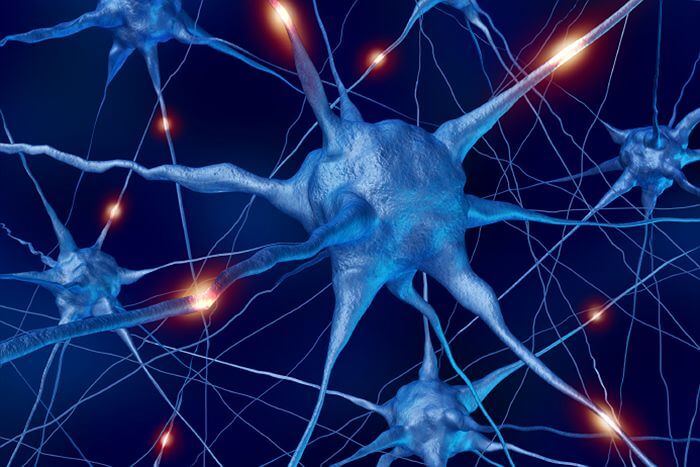
What Triggers Neuropathy?
A wide variety of conditions triggers neuropathy (or nerve damage) such as diabetes or treatments such as chemotherapy.
Neuropathy, sometimes called peripheral neuropathy, does not refer to a single condition. It is a term that is used to describe a variety of health issues involving damage to peripheral nerves.
Although the condition is irreversible in its entirety, there are steps you can take to prevent or manage neuropathy through diet, lifestyle and treatment.
Symptoms and Signs That Triggers Neuropathy
Neuropathy symptoms depend on the cause and the person, but they can include according to National Institute of Neurological Disorders and Stroke.
- Temporary or permanent numbness
- A burning, tingling or prickling sensation
- Sensitivity to touch has increased
- Pain
- Muscle weakness and wasting
- Paralysis
- Dysfunction of organs and glands
Causes and Risk Factors of Neuropathy
Neuropathy or nerve damage can occur in a variety of ways. It may affect the nerve axons, myelin sheath, or a combination.
Health Conditions That Triggers Neuropathy
The Foundation for Peripheral Neuropathy outlines the following common causes:
- Poorly Managed Diabetes: The most common form of neuropathy is called diabetic peripheral neuropathy. This affects people who have diabetes and are not well controlled. It accounts for approximately 60 percent of all people with neuropathy.
- Idiopathic neuropathy: The second largest group of people suffering from neuropathy is those who have not been diagnosed with a cause — 23 percent. This condition is called idiopathic neuropathy.
- HIV/AIDS: About 2 percent of all cases of neuropathy are attributed to HIV/AIDS. This can be due to side effects of the human immunodeficiency viruses or drugs that treat it.
Neuropathy can also be associated with other health conditions such as autoimmune diseases and life events like physical trauma.
Dietary Risk Factors
Neuropathy can also be caused by nutritional deficiencies, whether they are due to disease-related malabsorption, unbalanced nutrition, or a diet that is not well balanced.
Vitamin B12 Deficiency
This condition affects 10 to 15% of those over 60 and is linked to neuropathy according to an article in nutrition. The FPN explains that a deficiency in B12 can cause damage to the myelin protective sheath, which surrounds and protects the nerves. Without this protection, nerves can’t function properly. Vitamin B12 can be found in meat, poultry, fish, milk, and other dairy products. If your doctor has determined that you are deficient in B12, it is important to increase your intake. However, B12 injections or supplements can also be an option. The recommended daily allowance (RDA), for people aged 14 years and over is 24 micrograms (mcg). However, pregnant women and lactating women should consume 26 mcg (or 28 mcg) respectively.
Glucophage (metformin), a medication that people with type 2 diabetes use to manage their blood sugar levels, can increase your risk for vitamin B12 deficiency. Your doctor should be notified if you take the medication. He or she will then examine your body for possible deficiencies and offer advice on diet or supplementation.
Copper Deficiency Triggers Neuropathy
According to a previous study published in the Journal of Nutrition, copper can be found in legumes, meat, and nuts. Doctors state that the lack of copper is more often due to a person’s metabolism or malabsorption than an unbalanced diet. According to The American Journal of Emergency Medicine, oral and injectable supplements may be effective in treating the condition.
Over-consumption of Nutrients
Neuropathy can also be caused by too many nutrients. Too much B6 can cause nerve damage. While the daily requirement for B6 is minimal at less than 2 mg per day, many B6 supplements can contain 100mg or more. Doctors state that B6 can also be added to many packaged foods. The susceptibility to absorbing the nutrient varies so you should check your blood levels if you’re taking B6 supplements.
Exposure to Toxins in Food
Some doctors also said that neuropathy can be caused by exposure to food toxins. Food toxins are found in foods that we consider healthy such as seafood. “In our center we see people who have very high levels of mercury which can cause neuropathy.” According to the Environmental Protection Agency, fish can contain mercury. They recommend that children under 10 years of age, women between 16 and 49, pregnant or nursing, limit their intake to two to three per week.
If ingested in large amounts, arsenic, another heavy-metal, can cause neuropathy. This is usually due to drinking water that has been exposed to industrial waste. Although arsenic is found in small amounts in white and brown rice, it is not enough to cause nerve damage. A previous article provides more information on nerve damage that mercury and arsenic may cause.
How is Neuropathy Diagnosed
There are many ways neuropathy can be diagnosed. The process involves your doctor taking down your patient history, which will include a description of your complaints and a physical exam to verify the functioning of the affected area. Then, you can order tests.
- Electrodiagnostic Testing This includes nerve conduction testing and electromyography. Nerves are stimulated, and the responses are recorded. The abnormalities are then analyzed.
- Blood tests can be ordered to test for high blood sugar (as in type 2 diabetes), toxins and vitamin deficiencies, as well as evidence of abnormal immune responses.
- Skin biopsies A small incision will be made to take a sample from the skin for examination. This may be helpful in identifying certain disorders that affect small nerve fibers such as painful sensory neuropathies, which affect nerve fibers called the axons.
- Quantitative Sensory Test (QST), used to evaluate damage to nerve endings that sense temperature and vibrations. QST uses computer testing in order to determine how nerves react to stimuli.
Contact Us
Florida Medical Pain Management is proud to offer the latest advancements in interventional pain management for our patients. Contact us today!
Our Treatment Services
Florida Medical Pain Management is proud to provide the highest level of pain management in St. Petersburg, FL. Our treatments include:
- Treatment for Neuropathy
- Arthritis Management
- Back Pain Medication
- Chronic Pain Treatments
- PRP Injections
- Epidural Injection
- Regenerative Medicine
- Hip Pain Medication
- Ketamine Infusion Therapy
We want to help each patient live a more fulfilling and productive life by effectively managing their pain. Florida Medical Pain Management also provides home therapy and many more.Click here to see our other services.















